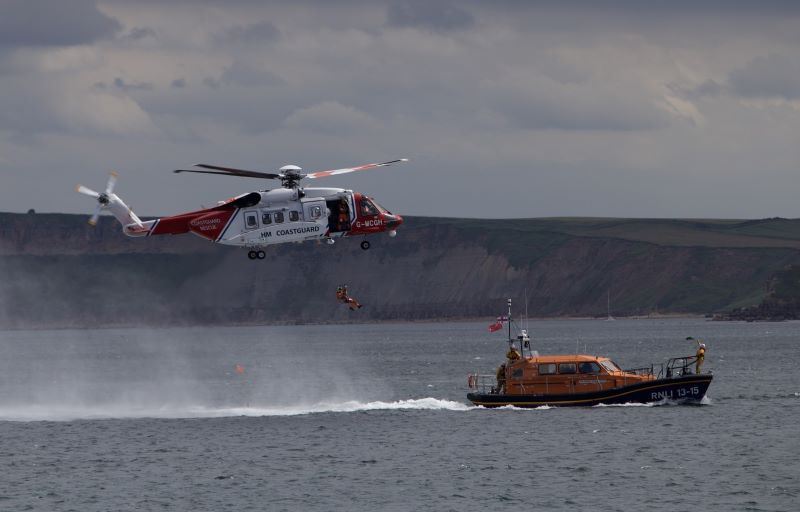SOLAS Two-Way Radios for Firefighters At Sea
 5th Oct 2023
5th Oct 2023

 Released On 6th Mar 2023
Released On 6th Mar 2023
Everything you need to know about VHF DSC radios, including their functions, features, and proper usage, plus our recommended radios.
VHF DSC radios are essential communication devices for sea-going vessels, and provide a reliable way to call for help in emergency situations. This basic guide covers everything you need to know about them.
Some VHF marine radios include Digital Selective Calling (DSC), an important maritime distress and safety system, which is designed to improve safety at sea. DSC communication systems enable a VHF radio to:
VHF DSC radios automatically monitor channel 70 (which is reserved exclusively for DSC communication), looking for emergency transmissions from other marine radios. If it picks up this type of alert, the radio emits a high-pitched audio alarm, and makes a note of the position of the vessel in distress, as well as a time log.
As well as sending a DSC distress alert at the touch of a button, the radio can perform other functions, for example:
Apart from the obvious benefit of transmitting distress alerts, DSC ensures you don’t miss safety broadcasts. Non-scheduled maritime safety information or security broadcasts from coastguard stations or ships automatically trigger an alert on DSC equipment so you are aware of it.
DSC can also be used for routine calls to other vessels (singly or as a group). Simply enter their dedicated number (Maritime Mobile Service Identity, or MMSI number), and choose a VHF working channel to send the call. Group DSC calls work well with yacht clubs, races, regattas, etc.
DSC technology is found in both handheld and fixed radios, although power and range tends to be stronger in fixed radios, whose antenna is generally fitted to a tall mast. Ideally, vessels ought to have both on board, as handheld radios provide mobility and flexibility in a range of emergency situations, and are generally waterproof, too.
A private leisure craft, sailing close to the shore, might not need the full range of GMDSS radio equipment. However, a DSC-enabled VHF radio is the minimum recommendation their crew should aim to have on board.
An operator’s licence, called the Short-Range Certificate, is required for anyone wishing to use a VHF DSC radio on pleasure or commercial vessels. This licence enables the operator to use any handheld marine VHF/DSC radio which is not permanently fitted to a vessel.
In an emergency, any crew member can use a VHS DSC radio. However, if you sail regularly, it’s advisable to do the one-day course so you know what to do if the need arises.
The following link takes you to a range of helpful leaflets regarding maritime safety, published by the UK government.
 5th Oct 2023
5th Oct 2023
 6th Feb 2023
6th Feb 2023
Stay up to date with the latest from RadioTrader